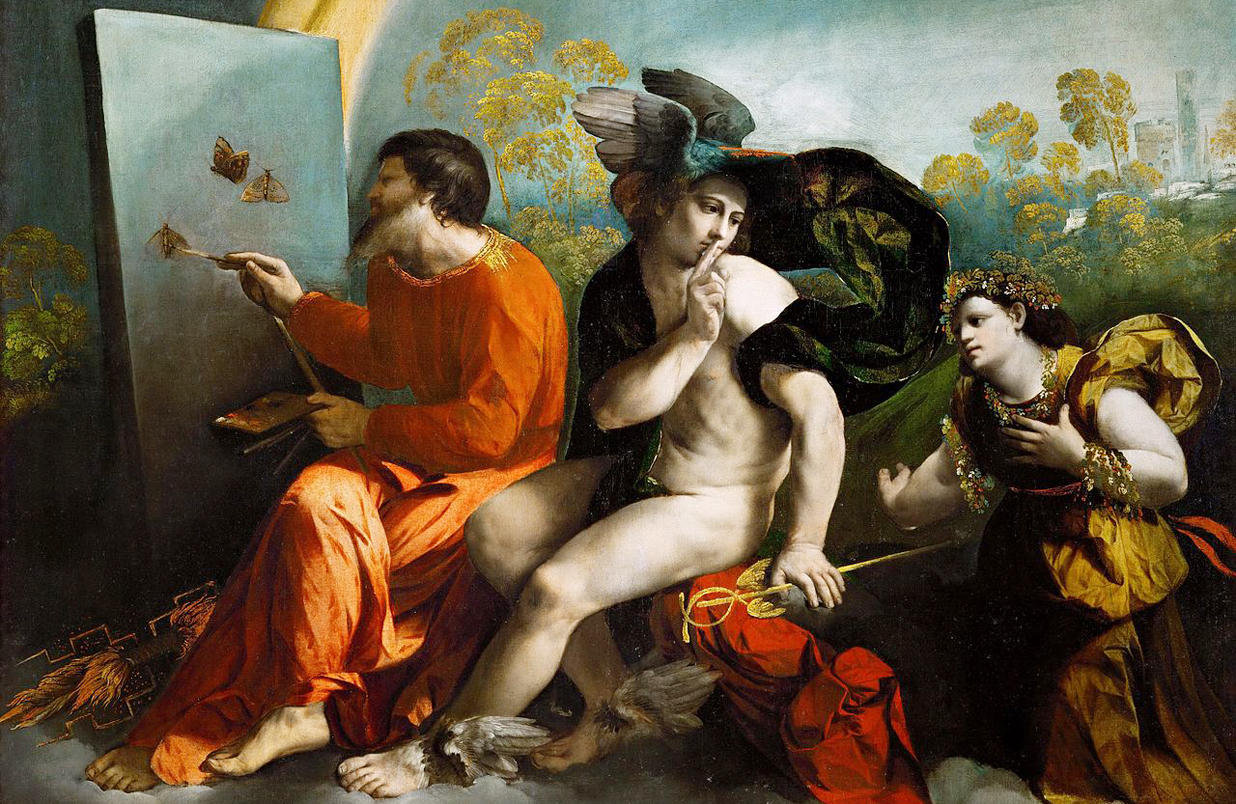
On the Transcendental Nature of Mercury
by Lee Duane FitzSimmons
The ancient god known as Mercury played numerous roles that primarily dealt with transcendental themes. He led souls into the afterlife and also assisted people who were transferring wealth or knowledge. In fact, the very etymology of his name, which is formed from the biliteral root of M and R, has the basic meaning of “to flow.” Uses of this ancient root can be seen in the words marsh, mire, marine, maritime, moor, menstrual, myrrh, and mermaid. Because of this basic meaning, the concepts of “trade,” “traffic,” and “liquidity” were also applied to this root. This usage can also be seen in the words merchant, merchandise, and market.
The second syllable of Mercury’s name is formed from the ancient biliteral stem that is composed of the letters K and R and means either “hair” or “horn.” There is also a link to the word hear. This etymology can be seen in the words keratin, crown, corona, cornet, and cornucopia. There is also a link to the word care. So when the etymologies of all the syllables of the word mercury are combined, a composite meaning can be asserted. One of the more logical meanings would be “flow of care." The name of this god in ancient Greece was Hermes. His name also has a link to the words hair and horn.

The name of Homer, the author of some of the most important works of ancient Greek literature, can also be linked etymologically to word Hermes. All of these variations of this etymological theme are commonly associated with the distribution and flow of knowledge. The biliteral root of H and R lies at the foundation of this name and possesses the primitive meanings of “heat” and “burn." Its etymology can be seen in the words heart and heat emanate. From these basic meanings, the concept of “hatred” was also applied to this root; the etymology is readily apparent. The concept of "care" directly relates to this biliteral root as well.
From these accumulated usages, other meanings associated with qualities of the feminine seductive essence were also perceived. Modern day usages of this concept can be seen in the words her, harlot, and harem. In addition, there is a triliteral stem that is composed of the letters H, R, and M that is derived from this biliteral root. This three-letter stem is at the etymological foundation of the names Hermes, hermetic, and hermetical. Its most fundamental meanings are “to shut in,” “to consecrate,” and “to separate.” Thus, a hermetically sealed container is an airtight container, and the word harem is an amalgamation of the meanings “shut in” and "her."
This etymological connection is also found in the many of the names (in various languages) generally assigned to the ninth Tarot symbol. A hermit is an individual who is separated from the rest of humanity. He possesses an enormously brilliant light of individual wisdom and insight because of his separation from the obfuscatory currents of mass group magnetisms. He helps man to cross over from ignorance into knowledge.
Thus, the etymologies of the names of this deity express all of the concepts that deal with transference. Mercury helps people and things get from one place to another. Mercury helps the essential flow of nature, commerce, and knowledge.
Mercury helps to bring peace.
* * *
INDEX
 |
 |
 |
 |
 |
 |
HOME * BOOKS * SANCTUARY * BIOGRAPHY
JAZZ * SYLVAN * ELECTRONIC * SYMPHONIC * ROCK * REGGAE
Copyright 2014 by Lee Fitzsimmons